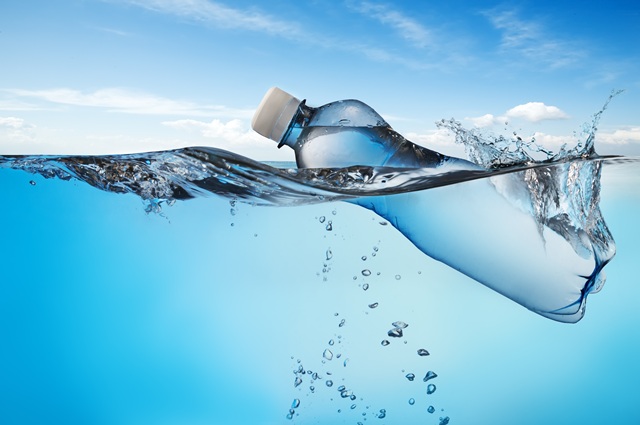
On 30 November 2012, the Meeting of the Parties (MoP) to the United Nations Economic Commission for Europe (UNECE) Convention on the Protection and Use of Transboundary Watercourses and International Lakes (Water Convention) adopted several decisions and a new programme of work that mark a crucial turning point in the globalization of the Convention.
Some 330 participants, representing Parties and non-Parties from the UNECE region as well also from other parts of the world, intergovernmental organizations and non-governmental organizations attended the sixth session of the MoP, which was held from 28 to 30 November 2012 in Rome.
At the sixth session, Parties adopted a decision on simplifying the procedure for the accession of non-UNECE countries to the Convention. Any future request for accession by any member of the United Nations will be considered as approved by the MoP, once the amendments to articles 25 and 26 to the Convention enter into force for all the Parties that adopted them in 2003.
This decision reconfirms the conviction of the Parties that the Convention is an effective instrument beyond the UNECE region, as well as the unanimous desire to enable accession by non-UNECE countries as soon as possible, without distinction from the procedure for UNECE countries. With this decision, it is expected that non-UNECE countries will be able to accede to the Water Convention as of the end of 2013. Countries outside the UNECE region were encouraged to join the Convention by United Nations Secretary-General Ban Ki-moon.
Other important decisions included the establishment of an Implementation Committee for the Convention. The Committee will render practical case-tailored assistance to prevent water-related disputes and support Parties in their efforts to implement the Convention. Its nine members were elected by consensus to serve in a personal capacity. They represent a good mix and balance of competences to accomplish the Committee’s tasks.
The Implementation Committee members include such outstanding lawyers as Johan Gerrit Lammers, Professor of International Law and former Legal Adviser at the Dutch Ministry of Foreign Affairs (the Netherlands); Stephen McCaffrey, Professor at the University of the Pacific, McGeorge School of Law and former Special Rapporteur for the International Law Commission's draft articles on The Law of the Non-Navigational Uses of International Watercourses (USA); and Attila Tanzi, Full Professor of International law at the University of Bologna and former Chair of the Legal Board of the Water Convention (Italy).
The Committee would benefit from a strong water management expertise with a clear emphasis on transboundary issues provided by such members as Vanya Grigorova, Director of the Executive Environment Agency (Bulgaria); Saghit Ibatullin, Chair of the Executive Committee of the International Fund for Saving the Aral Sea (Kazakhstan); Kari Kinnunen, former Chair of the Finnish-Norwegian Border Water Commission and Member of the Finnish-Swedish Border River Commission (Finland); Anne Schulte-Wulwer Leidig, Deputy Head of the Secretariat of the International Commission for the Protection of the Rhine (Germany); Aliaksander Stankevich, Head of the Republican centre for radiation control and environmental monitoring and former Deputy Head of the Central scientific research institute for complex use of the water resources of the Republic of Belarus (Belarus); and Ivan Zavadsky, Senior Water Resources Management Specialist, Global Environment Facility Secretariat (Slovakia).
Two decisions on cooperation — with the Global Environment Facility and with the United Nations Educational, Scientific and Cultural Organization — were also adopted. These decisions will reinforce the implementation of the Water Convention by strengthening synergies with global partners, which were invited to consider using the Convention, once it is open to accession by all United Nations Member States, as a basis for their work at the global level.
During the meeting, the signing ceremony of the new bilateral Treaty between the Government of the Republic of Moldova and the Cabinet of Ministers of Ukraine on Cooperation in the Field of Protection and Sustainable Development of the Dniester River Basin took place.
Italy was elected Chair of the Bureau. Massimo Cozzone, Senior Officer at the Department for Sustainable Development, Climate Change and Energy from the Ministry of Environment, Land and Sea, succeeds Sibylle Vermont of Switzerland as Chair.
For more information (decisions, report, information about the members of the Implementation Committee), please consult: http://www.unece.org/env/water/mop6.html or contact [email protected].
Note to editors
The Water Convention has the objective to strengthen national measures for the protection and sound management of transboundary surface water and groundwater. There are currently 39 Parties to the Convention.
The Meeting of the Parties, the main governing body of the Water Convention, met for its sixth session from 28 to 30 November 2012. The MoP was organized around a special session on the “twentieth anniversary of the Convention and its opening to all United Nations Members States: main achievements and remaining challenges for the Convention”, and a general segment on the review of the past activities and discussion of future activities in the different areas of work.
Parties adopted the new programme of work for 2013-2015. Work on support to implementation and accession, National Policy Dialogues and adaption to climate change in transboundary basins will remain the cornerstones of the work under the Convention. New areas of work were included in order to answer to today’s challenges, such as quantifying the benefits of transboundary cooperation, a thematic assessment on the water-food-energy-ecosystems nexus and activities related to the opening of the Water Convention, stressing the necessity for a coherent implementation of the Water Convention and the UN Convention on Watercourses.